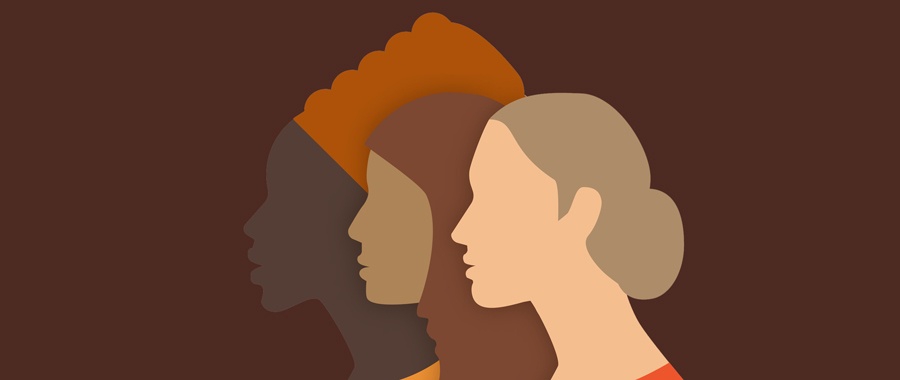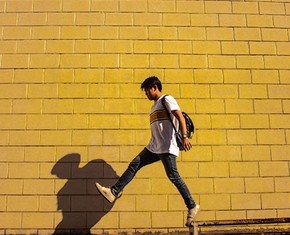The views expressed in our content reflect individual perspectives and do not represent the authoritative views of the Baha'i Faith.
Women still face enormous prejudice and discrimination in the world – but in many places, even worse atrocities happen to women on a regular basis. How can we stop them?
For the purposes of this article, let’s take a hard look at three of those particularly horrific practices still widely in place around the world today – bride burning, female genital mutilation, and sex trafficking. These atrocities not only dehumanize women but destroy their beauty, sexuality, womanhood – and their lives.
As a Baha’i, I believe men and women are equal and should be granted the same human rights. The Baha’i teachings say that until humanity achieves gender equality, it will not reach its true potential:
The world of humanity is possessed of two wings: the male and the female. So long as these two wings are not equivalent in strength, the bird will not fly. Until womankind reaches the same degree as man, until she enjoys the same arena of activity, extraordinary attainment for humanity will not be realized; humanity cannot wing its way to heights of real attainment. When the two wings … become equivalent in strength, enjoying the same prerogatives, the flight of man will be exceedingly lofty and extraordinary. – Abdu’l-Baha, The Promulgation of Universal Peace
As difficult as they are to consider, then, we must attempt to understand why these three terrible crimes against women still occur, and find ways to help the female wing of humanity soar.
1. Bride Burning or Dowry Death
There is a famous saying in India, “the more you beat her, the more you get.” Bride burning or dowry death, a form of domestic violence against women, occurs primarily on and around the Indian subcontinent. When the bride’s family refuses or is unable to pay an additional dowry, the woman is doused with kerosene or a similar flammable liquid and set on fire. Women rarely survive and those who do are permanently scarred and disfigured.
Every hour in India, a woman is the victim of a bride burning murder, accounting for over 8,000 deaths per year. Thousands more are severely burned and afterwards are treated as social outcasts. Despite legislation aimed at curtailing it, bride burning is on the rise with dowry deaths up to 15%-20% in some parts of India. Bride burnings represent a larger societal issue of how women are devalued and considered inferior to men, not only in Indian culture but across many developed and developing nations.
2. Female Genital Mutilation (FGM)
Female genital mutilation – the removal or cutting of the external female genitalia or injury to female genital organs – is found all over the world. However, it predominantly occurs toward young girls in Africa, Asia, and the Middle East. After FGM, females experience detrimental health effects which include infection, pain, infertility, hemorrhaging, and complications during childbirth. According to the United Nations:
Despite being internationally recognized as a human rights violation, some 200 million girls and women alive today have undergone FGM, and if current rates persist, an estimated 68 million more will be cut between 2015 and 2030.
FGM embodies the pervasive gender violence, discrimination, and lack of women’s rights in communities around the world.
3. Sex Trafficking
Sex trafficking, a modern form of slavery, aims at the sexual exploitation of mainly children and women. Authorities estimate that there are 4.5 million victims of sex trafficking worldwide. Because it typically happens among the most vulnerable populations – those who are racially, economically, or politically marginalized – the vast majority of human trafficking cases go undiscovered, with only .04% cases identified internationally. In 2018, the United States, Mexico, and the Philippines were ranked as the world’s worst places for human trafficking. Due to the inherent gender prejudice and discrimination in society, sex trafficking causes women’s bodies to be abused and treated like commodities.
With all of these terrible practices, all of humanity must stand up and say enough is enough.
A threat to the human rights of others threatens all of our rights. We each need to advocate for increased awareness, education, and legislation – but equally importantly, we each need to see and treat all women as full human beings, letting go of the old traditions, prejudices and practices that continue to marginalize one half of humanity.
The Baha’i writings explain that women require the same education and opportunities afforded to men. The 21st century offers the promise of a new day, where men and women can serve together side by side without the historical and cultural dogma of the past preventing them from attaining their highest capacities and achievements. In a world facing uncertainty and upheaval, we need each other now more than ever to foster a civilization based on the spiritual principles of unity, equality, and justice:
The purpose, in brief, is this: that if woman be fully educated and granted her rights, she will attain the capacity for wonderful accomplishments and prove herself the equal of man. She is the coadjutor of man, his complement and helpmeet. Both are human; both are endowed with potentialities of intelligence and embody the virtues of humanity. In all human powers and functions they are partners and coequals. At present in spheres of human activity woman does not manifest her natal prerogatives, owing to lack of education and opportunity. Without doubt education will establish her equality with men. – Ibid.
















Comments
Sign in or create an account
Continue with Googleor